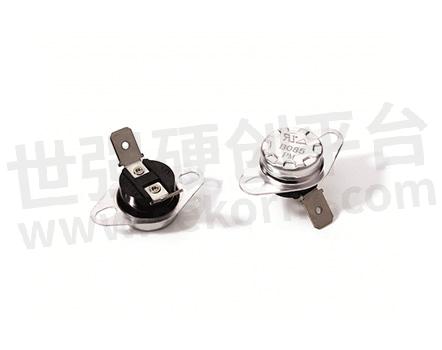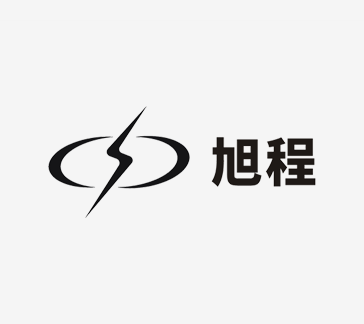High-Speed Fusing Chip Fuses Play A Crucial Role in Protecting Electronic Circuits





High-speed fusing chip fuses play a crucial role in protecting electronic circuits. These fuses are designed to quickly interrupt the flow of current in the event of an overcurrent or short circuit, preventing damage to sensitive electronic components.
One of the key features of high-speed fusing chip fuses is their fast response time. These fuses can react within milliseconds to an overcurrent condition, providing rapid protection for the circuit. This is especially important in applications where a delay in fuse operation could result in significant damage to the electronics.
Another important characteristic of high-speed fusing chip fuses is their ability to handle high currents. These fuses are available in a range of current ratings, allowing them to be used in a variety of applications. Additionally, high-speed fusing chip fuses are often designed to withstand transient surges and spikes in current, providing added protection for the circuit.
In addition to their fast response time and high current handling capabilities, high-speed fusing chip fuses are also very compact. This makes them ideal for use in space-constrained applications, such as portable electronics and small form factor devices. The small size of these fuses also allows for easy integration into printed circuit boards, reducing assembly time and cost.
high-speed fusing chip fuses are an essential component in protecting electronic circuits. Their fast response time, high current handling capabilities, and compact size make them an ideal choice for a wide range of applications.
- |
- +1 赞 0
- 收藏
- 评论 0
本文由Natalia转载自XC Official Website,原文标题为:High-Speed Fusing Chip Fuses,本站所有转载文章系出于传递更多信息之目的,且明确注明来源,不希望被转载的媒体或个人可与我们联系,我们将立即进行删除处理。
相关推荐
Temperature Characteristics of Current Fuses
Current fuses exhibit specific temperature characteristics that play a crucial role in their performance and reliability. The behavior of a current fuse in response to temperature changes is determined by several factors.
Factors Affecting the Lifespan of Fuses and Their Evaluation
In this article, XC tells factors that affect the lifespan of fuses.
Explanation of Parameters in the PPTC Specification for Self Healing Fuses
This is very simple. As long as you know the meaning represented by the parameters in the specification book, you can clearly and quickly view the PTC specification book for self recovery fuses.
Eaton Bussmann(伊顿巴斯曼) 低压辅助熔断器(保险丝)选型指南
目录- Low Voltage Supplementary Fuses Cable Limiters & Welder Limiters Fast-acting Fuses Time-delay Fuses Fast-acting Fuses Pin Indication Fuse and Actuator; and Limiters In-line Size Rejecting Fuses and Fuse Holders In-line Non-rejecting Fuses and Fuse Holders Automotive Blade-type Fuses Automotive Blade-type Fuse Holders
型号- PV-1A10F,FNA-2-1/4,MIC-15,KTK,FNA-2-1/2,ANN-225,GMQ-1-1/4,KTQ,FNQ-9,ANN-100,BAF-1,FNQ-8,GLR,BAF-2,FNQ-7,GLQ,BAF-3,FNQ-6,MIC-10,J600,BAF-4,FNQ-5,BAF-5,FNQ-4,BAF-6,FNQ-3,BAF-7,FNQ-2,BBS,BAF-8,FNQ-1,MIN-15,BAF-9,NDNF1-WH,BBS-1-1/2,MIN-10,FNA-8,FNA-9,FNA-6,ATM-15ID,FNA-7,FNA-4,FNM-2⁄10,FNA-5,FNA-2,GMF,68400,FNA-3,MIC-25,DCM-2-1/2,FNA-1,ATM-5ID,FNA-15,FNA-12,GMQ,ATC-10ID,GLR-1-1⁄2,MIC-20,FNA-10,DCM-2⁄10,MIN-25,ANL-500,MIN-20,BAF-2-1/2,BAF-6/10,GMQ-6⁄10,HPG,HPF,BBS-3/4,FNM-2-1/2,FNM-2-1/4,HPM,BAF-6-1⁄4,ANN-325,BH,MAX-20,ANN-200,HPS,BM,MIC-30,MAX-25,FNQ-2⁄10,FNA-6-1⁄4,MIN-30,KTK-1-1/2,FNA-6/10,KTK-1-1/4,FNQ-3-1⁄2,68300,PV-8A10F,CH,OPM-NG-SC3,BBS-30B,FNM-3/4,GMF-1-6⁄10,GMQ-1⁄2,GLD-3⁄4,FNA,GLQ-1-6⁄10,ANL-600,GBA-3⁄4,KFH-A,FNA-1-8/10,FNM,BAF-1-1/2,MAX-40,FNA-15*,FNQ,ANN-300,GMF-8⁄10,KTK-45,KTK-6/10,PV-12A10F,GMF-3 -2⁄10,KTK-40,KTK-3⁄4,FNQ-8/10,HLQ-1⁄2,68200,ATC-35ID,FNA-1-4⁄10,ATM-3ID,MAX-30,MAX-35,4164-FR,FNQ-1⁄10,HLQ-3 -2⁄10,KTK-35,FNA-1-1/8,KTK-30,ATM-5LP,GLR-1⁄2,GRF,FNA-1-1/2,FNA-1-1/4,FNM-3⁄10,MAX-60,BAF-1/4,ANN-400,FNA-5-6⁄10,KLM-15,KLM-12,FNM-15⁄100,KLM-10,BK/HHC-R,DCM-1⁄10,KLM-20,FNM-1-1/4,GMF-2 -8⁄10,FNM-1-1/2,FNM-1-1/8,KFT1,BAF-1/2,FNM-4⁄10,MAX-50,GMF-1-1⁄4,FNQ-4-1⁄2,KLM-25,FNQ-5-6⁄10,FNM-1/2,FNM-1/4,KLM-30,FNM-1/8,GLD-1⁄2,DCM-1/8,BBS-1-8⁄10,DCM-1/4,KTK-50,KTK-7-1/2,DCM-1/2,GBA-1⁄2,FNQ-1/10,FNQ-1-6⁄10,FNM-3-2/10,FNQ-3-2/10,ANN-500,ATC-15,ATC-20,MAX-80ID,GLQ-2-1⁄2,KTK-2/10,BBS-1⁄10,FNM-1-6⁄10,ANN-60,H250,OPM-1038RSW,64200,FNA-1-1⁄8,KTK-2-1/2,FNA-1-1⁄4,HLQ-1/2,FNA-1/8,FNA-1-1⁄2,BBS-1-6⁄10,FNA-1/4,ATC-10,FNA-1/2,PV-3A10F,ATM-30,FNA-25*,MAX,ANN-600,JP,ATC-40ID,FNA-1-6/10,FNA-8⁄10,FNM-6/10,ATC-40,ANN-40,BAF-8⁄10,KTK-3,KTK-4,FNA-1-6⁄10,KTK-5,FNQ-2/10,FNA-12*,KTK-6,KTK-7,BBS-1-1⁄2,KTK-8,KTK-9,FNA-3-2/10,ATM-FHID,ATC-25,KTK-1,KTK-2,FNM-6-1⁄4,MAX-70ID,KTK-7-1⁄2,ATC-30,ATC-35,KTK-3/10,DCM-3/4,KLM-1-1⁄2,FNA-3/10,DCM-1/10,ANN-50,BBS-2⁄10,GLQ-1-1⁄2,FNQ-1⁄4,ANN-700,GMF-2-1/2,FNQ-1⁄2,GMF-1/2,ATC-20ID,FNQ-4⁄10,FNM-4/10,DCM-3⁄10,PV-2A10F,BAF-10,BAF-12,FNA-3-1/2,FNA-4/10,FNM-6⁄10,BAF-15,FNM-3-2⁄10,64000,68600,BS-1⁄2,FNM-2-8⁄10,FNQ-1-6/10,FNM-4-1⁄2,BAF-20,GMF-3/10,FNA-3/4,DCM-1-1/2,DCM-1-1/4,KEW1,BBS-1/2,ATM-30LP,BAF-25,BBS-1/4,GRF-10,FNQ-1⁄8,ANL,ANN,OPM-1038R,FNQ-30,ANN-800,GMF-5,KAZ,GMF-1,GMF-6⁄10,GMF-2,GMF-3,GMF-4,ATC-7-1/2ID,FNQ-15⁄100,HLQ-1-6⁄10,MAX-60ID,DCM-2/10,KTK-4/10,PV-15A10F,ATM-25,FNM-1-4⁄10,HHM-B,HHM-C,ANN-80,ATM-20,FNQ-20,FNQ-3⁄16,FNA-15⁄100,4164,FNQ-25,FNA-4-1/2,GLD-6,KCA,GLD-2,GLD-3,BAF-1-8⁄10,KCC,GLD-4,KCB,GLD-5,ATC-30ID,KCE,FNA-6⁄10,KCF,GLD-1,FNQ-3⁄10,FNA-20*,KLM-5,KCH,KLM-6,GBA-3/4,KCJ,KLM-8,KCM,KLM-1,KLM-2,BAF-8/10,KLM-3,KLM-4,BK/HHF-B,ANN-90,ATM-15,KCS,KCR,GMQ-6-1/4,ATM-10,KCV,KCY,FNQ-10,FNQ-6-1⁄4,GMF-1⁄2,GLQ-1-6/10,KCZ,DCM-8,FNQ-14,ATM-30ID,DCM-7,PV,FNQ-12,DCM-9,KDB,DCM-4,FNQ-1/2,KDA,DCM-3,FNA-1-4/10,FNA-3-1⁄2,KDD,DCM-6,FNQ-1/4,KDC,DCM-5,FNQ-15,GMF-6 -1⁄4,KDF,KCD,KDE,KTK-3/4,KDH,DCM-2,FNQ-1/8,DCM-1,KDJ,DCM-1⁄4,DCM-1⁄2,ANL-175,FNQ-8⁄10,ANL-40,GMQ-2-1⁄2,DCM-1⁄8,KDP,KDR,ATM-5,HHL-B,KDT,ATM-4,ATM-20LP,ATM-3,KDU,FNQ-4/10,ATC-3ID,KDY,HLQ-8,ATM-2,MIC,FNA-1-8⁄10,64600,KCM-B,FNA-4⁄10,GMF-1-6/10,HLQ-5,ANL-50,DCM-3/10,MIN,MAX-50ID,KDM,MIS,GLR-1/2,GMQ-8/10,BBS-4⁄10,ATC-FHID,FNM-3-1⁄2,KEX,BBS-30,MIS-5,MIS-4,MIS-3,ATM-7-1/2,MIS-2,MIS-1,FNM-1-8⁄10,FNQ-1-1/2,BBS-20,MIC-5,FNM-2-8/10,ANL-275,MIC-3,KFM,MIC-2,MIC-1,GMF-3-2/10,BBS-25,BAF-30,GLD-1/2,GMF-8/10,FNM-5-6/10,KFZ,FNQ-5-6/10,KLM-3/4,GBA-15,ANL-35,FNM-3/10,MAX-40ID,GBA-10,FNM-1-4/10,ATC,BBS-10,BBS-12,GLR-8,KLM-2/10,GLR-9,BBS-15,GMF-1-1/4,GLR-4,GLR-5,ATM,GLR-6,MAX-100ID,GLR-7,MIS-8,GLR-1,GLR-2,KTK-45*,GLR-3,GMQ-1-1⁄4,KTK-1/2,FNA-3⁄10,HLQ-3-2⁄10,KTK-1/4,GMQ-3 -2⁄10,KTK-1/8,BAF-6⁄10,BAF-1-8/10,ANL-130,DCM-3⁄4,FNA-2-1⁄4,GLR-15,FNA-2-1⁄2,GLR-12,GMF-6/10,ANL-80,FNA-2-8/10,GMF-2 -1⁄2,GLR-10,ATC-5ID,FNA-1/10,64400,KIG,PV-4A10F,FNA-1⁄8,FNM-1/10,ANL-150,FNM-1-6/10,ATM_ID,FNA-1⁄2,ATM-7-1/2LP,ANN-35,GLQ-9,FNA-1⁄4,KTK-1/10,GLQ-5,GLR-1-6⁄10,FNQ-3-2⁄10,GMF-2-8/10,FNA-3-2⁄10,GLQ-1,FNQ-3/10,GLQ-2,KTK-35*,GLQ-3,FNQ-2-1/2,GLQ-4,KTK-3-1/2,FNA-2/10,BAF-6-1/4,GBA,FNQ-3/16,FNM-2-1⁄2,FNM-2/10,ATC-7-1/2,FNM-2-1⁄4,MAX-30ID,FNQ-6⁄10,ANL-60,ANL-350,KLM-3/10,MAX_ID,ATM-7-1/2ID,PV-5A10F,KLM-1/4,ATC_ID,ATM-20ID,HEB,64300,MIS-10,KLM-1/2,MIS-12,BAF-2⁄10,GBA-5,GBA-4,GBA-3,ANL-250,GBA-2,KLM-1/8,GBA-1,GMF-3⁄10,BBS-6⁄10,ANN-10,ANL-125,GBA-8,GMQ-1/2,ATM-10LP,HEX,GLQ-10,HEY,FNM-3⁄4,MAX-80,DCM-30,BBS-1⁄4,GMQ-1,MIN-5,BK/HHL-R,MIN-3,BAF-1-1⁄2,MIN-2,MIN-1,KLM,GMQ-6 -1⁄4,FNM-15/100,FNM-9,FNQ-15/100,FNM-8,KTK-1⁄2,FNM-7,FNM-6,KTK-1⁄4,FNM-5,FNM-4,FNM-3,DCM-1-1⁄2,FNM-2,HHX-B,FNM-1,HHX-C,DCM-1-1⁄4,GMQ-6,GMQ-2,GMQ-3-2/10,FNA-8/10,GMQ-3,KTK-1⁄8,GMQ-4,DCM-25,MAX-70,HPC-D,MAX-20ID,ANN-175,KTK-3-1⁄2,FNQ-3-1/2,HLQ-10,ANL-100,ANL-225,FNA-3⁄4,BBS-1,SAFETY J™,BBS-3,BBS-2,BBS-5,BBS-4,BBS-7,68000,BBS-6,FNM-4-1/2,BBS-8,GMQ-1-6⁄10,BAF-1⁄2,FNQ-1-1⁄4,HHC,PV-6A10F,BAF-1⁄4,DCM-10,ATM-10ID,HHD,FNQ-1-1⁄8,ATC-25ID,HHG,HHF,FNM-30,FNA-2-8⁄10,GMQ-1-6/10,HHM,HHL,H600,KTK-25,GMF-6-1/4,KTK-20,ANL-675,HPS-L,HHX,KLM-1⁄4,FNM-1-1⁄4,GLR-1-1/2,FNM-1-1⁄2,KLM-1⁄8,DCM-20,FNM-20,KLM-1⁄2,FNA-2⁄10,FNM-25,GMF-10,ANN-275,FNA-15/100,ANN-150,KTK-12,KTK-15,
Calculation Method for Melt Current of Fuse Fuses
The current of a fuse includes two aspects, one is the rated current of the fuse tube, and the other is the rated current of the melt, which cannot be confused.
Selection of Current Fuses in Automotive Circuits
In automotive circuits, the selection of current fuses is of great significance for ensuring the safe operation of the vehicle. There are several key factors to consider when choosing a current fuse for an automotive circuit.
Professional Knowledge of Self-healing Fuses
The operating principle of a self-healing fuse is a dynamic balance of energy. The current flowing through the self-healing fuse generates a certain amount of heat due to the thermal effect of the current (self-healing fuses all have resistance values), and the generated heat is completely or partially dissipated into the environment. The heat that is not dissipated will increase the temperature of the self-healing fuse components. The temperature during normal operation is relatively low, and the heat generated and dissipated reaches a balance.
Essential Knowledge for Selecting Automotive Fuses
When a certain overload current passes through, the heat generated is radiated to the surrounding environment through the melt and shell, and the heat dissipated through convection, conduction, and other means gradually reaches a balance with the heat generated. If the generated heat is greater than the dissipated heat, the melt temperature can increase; When the temperature reaches or exceeds the melting point of the melt, the melt melts, fuses, and cuts off the current, playing a role in safety protection of the circuit.
Encapsulation Forms of Current Fuses
The encapsulation of current fuses is an important aspect that affects their performance, durability, and safety.
Self Recovery Performance and Working Process of Self Recovery Fuses
Traditional fuses are installed in circuits. When an overcurrent occurs due to a fault or abnormality in the circuit, the fuse itself melts to cut off the current and protect the circuit. However, due to the fact that traditional fuses can only protect once and need to be replaced if burned out, some products still cannot resume operation after troubleshooting or abnormal overcurrent disappears. As a new type of overcurrent protection device, the self-recovery fuse has the function of automatic recovery, which can meet the performance requirements of similar applications.
Electric Vehicle Malfunctions Due to Lack of Fuses or Diodes
With the development of life, electric vehicles have also become popular. In order to facilitate people‘s travel, many families have started to use electric vehicles, which are convenient and affordable. However, there are still many unknown problems that arise during use. Today, the editor will briefly talk about the structural issues of electric vehicles.
The Role of Current Fuses in Smart Meters
Current fuses play a vital role in smart meters. Firstly, they provide protection against overcurrent events. Smart meters are used to measure and manage electricity consumption accurately. However, electrical circuits can sometimes experience sudden surges in current due to various reasons such as power outages and subsequent restoration, short circuits in the electrical grid, or the malfunction of connected electrical appliances.
The Installation Precautions for Current Fuses
The installation of current fuses is crucial for ensuring the safety and proper functioning of electrical circuits. Here are some important installation precautions to keep in mind.
Common Sense for Fuses
A fuse refers to a self destructing fuse that experiences significant surges or other current exceeding limits in a circuit; In order to protect the components of other parts of the circuit where the fuse is located and the equipment is normal, the cost of replacing the fuse can be ignored compared to replacing the entire circuit that may be damaged. Due to the fact that fuses are a common element that needs to be replaced, we will introduce two basic concepts and provide a more in-depth introduction to fusion applications and testing and diagnostic methods.
Principle of Resettable Current Fuses
Resettable current fuses offer a unique solution for protecting electrical circuits while providing the convenience of being reusable. Here‘s how they work.
电子商城
现货市场
服务
可贴片PCB尺寸50*50mm-580*610mm;PCB厚度0.3-8mm;贴装精度CHIP元件+0.03,BGA Pitch 大于0.25mm;元件尺寸0201-74*74BGA;元件高度:30mm。
最小起订量: 1 提交需求>
可加工PCB的尺寸范围:50*50mm~610*508mm,板厚:0.3mm~4.5mm,元件尺寸:最大200*125mm,最小引脚零件间距:0.3mm,最小BGA间距:0.3mm,支持01005 chip件贴装。
最小起订量: 3 提交需求>










































































































































































































登录 | 立即注册
提交评论